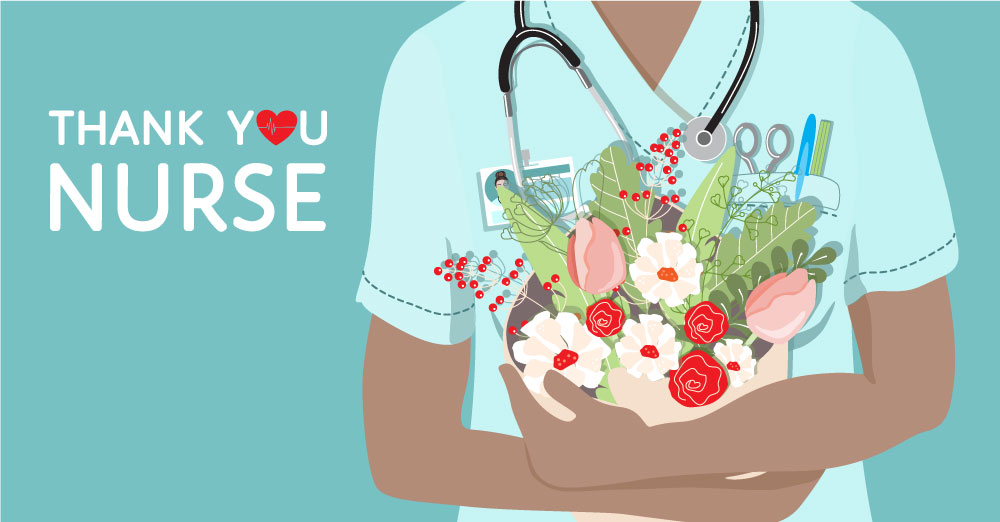Listen to the blog
During the month of May, we’re observing National Nurses Month, celebrating the significant contributions that nurses make to the healthcare industry.
It’s a well-known fact that nursing is one of the most physically and emotionally challenging professions and requires an unparalleled commitment, one well worthy of celebrating.
In the face of global pandemics, hospital staffing issues, and a host of other factors thousands of nurses are leaving the profession. According to the research website zippia.com, 4.7 million U.S. nurses are expected to retire by 2030, with 55% of registered nurses over the age of 50. In one study, 37% of new RNs report wanting to change their job after only one year on the job.
Caring for multiple patients and multitasking often leaves nurses without adequate time for necessities like meals or bathroom breaks. With a national rise in staff shortages, nurses are also required to work extra shifts, increasing the chances of exhaustion and burnout.
While remedying the nursing shortage requires complex solutions that a single entity such as a hospital cannot solve on its own, one simple tool has been shown to significantly and directly impact the nursing culture immediately: recognition and reward practices.
From a “quick thanks” or a simple “job well done” shout-out or acknowledgment — any meaningful and genuine recognition is easily executed and well appreciated. That makes it all the more surprising that this commonsense practice is not included in more hospitals’ and health systems’ protocols.
Meaningful recognition comes in all sizes
In a recent nurses.com report, Rachelle Busam, RN, noted “nurses selflessly give themselves during every shift, to every patient, without asking for anything in return. After an especially tough day, it’s that simple act of thanks that keeps a nurse wanting to come back for their next shift.”
And no gesture is too small. “Those acts of recognition really do impact nurses, from a heartfelt thank you from a patient to a manager who does something special for their unit — even just ordering food during a hectic shift to keep their staff going and show they’re appreciated,” said Busam.
Study shows meaningful recognition’s impact on nurses
To examine the effect of meaningful recognition programs on compassion fatigue, researchers at Arizona State University conducted a national study of critical care nurses. The research zeroed in on the impact recognition can make on things like job satisfaction and enjoyment.
“Meaningful recognition was a significant predictor of decreased burnout and increased compassion satisfaction,” the study concluded. “Additionally, job satisfaction and job enjoyment were highly predictive of decreased burnout, decreased secondary traumatic stress, and increased compassion satisfaction.”
It also noted that in addition to acknowledging and valuing nurses’ contributions to care, meaningful recognition can help reduce burnout and boost “compassion satisfaction.”
Key takeaways on nurse recognition
Clearly meaningful recognition and rewards for nurses can make an immediate impact on improving a hospital’s or health system’s culture and is needed now more than ever before. This small step will go a long way in letting nurses know how much they’re appreciated — by fellow healthcare workers, patients, and patients’ families. Having a recognition system in place sets an organization up for success with minimal effort.
Recognition can also foster a positive work environment and a culture of gratitude and trust. When there is trust and positivity, there’s teamwork and then innovation. That all leads to positive patient outcomes.
Ultimately, as we observe National Nurses Month and celebrate the daily contributions that nurses make in the healthcare industry, going above and beyond just remembering them for one month we need to find genuine ways to honor and recognize them all year along.






0 Comments